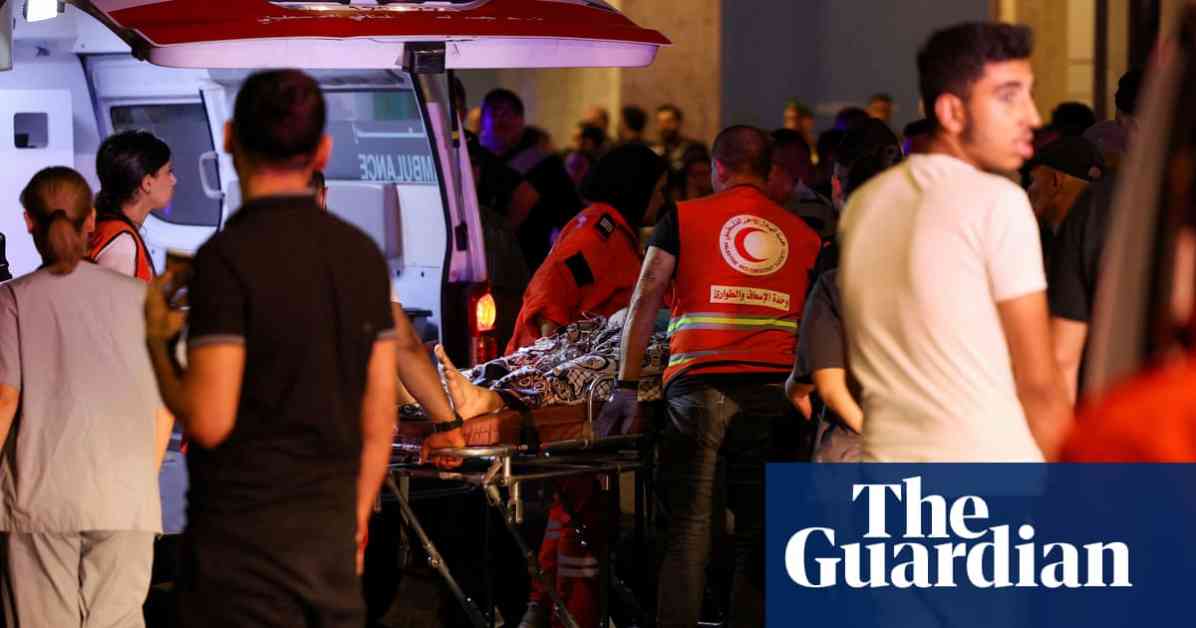Israel’s Explosives Found in Pagers Imported by Hezbollah
Reports have surfaced indicating that Israel may have planted explosives inside thousands of pagers imported by Hezbollah months before the recent unprecedented attack in Lebanon. According to sources cited by Reuters and US media, this operation marked a major security breach that resulted in the detonation of thousands of pagers across Lebanon and Syria. The attacks led to the tragic deaths of nine individuals and left almost 3,000 others wounded, including members of Hezbollah and Iran’s envoy to Beirut.
Hezbollah, a Lebanese militant group, promptly accused Israel’s spy agency, the Mossad, of orchestrating the explosions. The Lebanese health minister, Firass Abiad, revealed that among the casualties was a young girl, with over 200 individuals sustaining critical injuries. In response to the attacks, Hezbollah vowed to conduct a thorough investigation into the matter and promised that Israel would face consequences for its actions. Lebanese information minister Ziad Makary condemned the assault as an “Israeli aggression.”
While the Israeli military has refrained from directly commenting on the blasts, senior commanders have held a situational assessment to ensure readiness for both offensive and defensive measures across various arenas. The Taiwanese manufacturer associated with the pagers that detonated clarified that the devices were not manufactured by them but rather by a European company that possessed the rights to use their brand.
In the aftermath of the attacks, images of the pagers surfaced, with stickers on the back suggesting a connection to the Taiwanese company Gold Apollo. However, the company’s founder, Hsu Ching-kuang, denied their involvement in the production of the pagers, stating that they were manufactured by a European entity under their brand. This revelation created a sense of embarrassment for the company, as it distanced itself from the tragic events that unfolded in Lebanon and Syria.
Exploiting the low-tech pagers that Hezbollah had adopted to evade potential tracking through mobile phone signals, the explosions targeted key locations associated with the group. Notably, the casualties included Iran’s ambassador to Beirut, Mojtaba Amani, further escalating tensions between the involved parties. A Hezbollah source speculated that the attack was in retaliation for an alleged assassination attempt on a former top Israeli defense official by the Shia militia.
The aftermath of the blasts overwhelmed hospitals in Lebanon, prompting the establishment of a field hospital in Tyre to accommodate the influx of wounded individuals. The constant sound of ambulance sirens in Beirut highlighted the severity of the situation, indicating the urgent need for medical attention for the victims. Amidst these developments, US officials sought to de-escalate tensions between Israel and Hezbollah, expressing concerns over the potential for a ground invasion of Lebanon by Israeli forces.
The recent attack occurred hours after Israel expanded its military objectives in response to Hamas attacks on October 7, broadening its focus to include confrontations with Hezbollah along the Lebanese border. This move further heightened tensions in the region, fueling fears of a potential regional conflict. Hezbollah confirmed the deaths of several individuals, including fighters and a young girl, as well as the son of Hezbollah MP Ali Ammar, in the explosions that targeted their strongholds.
The detonation of the pagers represented a significant security breach for Hezbollah, reminiscent of similar counterintelligence failures in the past. The attack followed a series of targeted assassinations by Israel against senior Hezbollah leaders, escalating hostilities between the two adversaries. While a fragile calm had prevailed in recent weeks, the recent events threatened to derail efforts to prevent further escalations in the region.
As the situation continues to unfold, the international community remains on edge, with the United States monitoring developments closely. Concerns over potential retaliatory actions by Iran, a key supporter of Hezbollah, have added another layer of complexity to an already volatile situation. The impact of these events on ongoing ceasefire talks in Gaza remains uncertain, with Hamas characterizing the attacks as an escalation that could lead to Israel’s defeat.
In conclusion, the discovery of explosives in pagers imported by Hezbollah has reignited tensions in the region, prompting fears of further violence and conflict. The tragic consequences of the recent attacks serve as a stark reminder of the fragile peace in the Middle East and the urgent need for diplomatic solutions to prevent further bloodshed.












